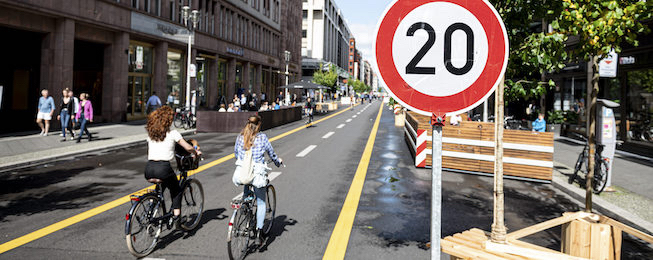In a major change, the European Investment Bank (EIB) is dialing back spending on roads and will instead focus more on active and public transport.
The bank is the lending arm of the European Union.
Its new policy is part of international recognition that transport emissions reduction is now an urgent priority in the face of accelerating climate change.
While many nations are working hard on decarbonising their energy sectors, they keep on investing heavily in roads for private vehicle travel, which has induced further carbon emissions from the transport sector.
Australia has the dubious honour of decades of climate policy failure in both power generation and transport.
The EIB has explicitly switched direction and now will prioritise "the shift from individual car use to public and collective transport, walking and cycling and the adoption of zero-emission transport technologies for the decarbonisation of public fleets, with the development of related infrastructure.”
"To complement collective transport projects, the EIB will prioritise investments in assets supporting active mobility modes, such as walking and cycling,” the new EIB policy states.
"Due to their relatively small investment size, these are usually bundled with other transport schemes in comprehensive urban or regional development programmes and justified in that context.
"Although urban areas provide the greatest potential for walking and cycling, priority will also be given to regional and interurban active mobility projects, including stand-alone projects or as part of a wider programme."
The EIB says investments will be assessed and justified as part of the urban development of which they form part, where the primary objective is to support collective transport and active modes, road safety, traffic calming, climate change adaptation or the deployment of charging infrastructure for zero-emission vehicles.
It says that the current transport system, with its overreliance on fossil fuels and its adverse impacts on climate and the environment, needs urgent reform.
"The EIB will support investments that contribute to transforming transport into a more sustainable system, making transport systems safer, more accessible, greener and more efficient, and ensuring that mobility can meet the needs of the current generation without compromising its legacy for future generations.”
Become our friend
Find out more about Bicycle Network and support us in making it easier for people to ride bikes.


